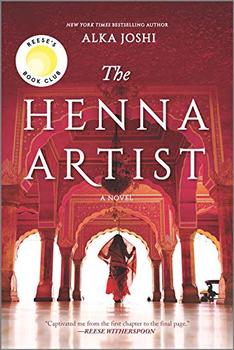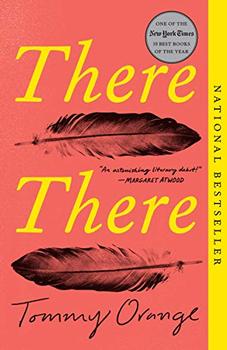Reading a duology, trilogy, or longer series with your book club can be a special experience. Discussing linked books set in the same universe allows you to take an extended journey together, and the eager awaiting of a sequel or the next installment featuring a beloved character is a delicious anticipation that’s even better when shared. But what are the best series for book clubs? It might seem like series are the territory of certain types of genre fiction, like high fantasy, which many book groups don’t make a habit of reading, but in fact, there’s a wide variety out there that lend themselves well to discussion. Below, we present recent and ongoing series that seem ideal for book clubs—and in some cases are already very popular with them. Many of the books in these series have been subjects of BookBrowse reviews or online discussions—and we have reading guides for a lot of them!

Elizabeth Strout’s acclaimed Amgash series is named for the fictional town of Amgash, Illinois. Beginning with My Name Is Lucy Barton (2016), which focuses on the relationship between the titular character and her mother, the series currently boasts five novels featuring writer Lucy Barton, including Anything Is Possible (2017), Oh William! (2021), and Lucy by the Sea (2022). Strout, whose work has been adapted for the screen and is known for her restrained prose and sensitive portrayals of complex characters in quiet settings, creates a larger universe beyond Amgash; her latest novel, Tell Me Everything (2024), includes crossover between Lucy’s world and that of Strout’s popular Olive Kitteridge books, along with characters from additional novels, making for a rich amalgam for readers and book groups to explore. A different series often praised for its compelling character work is Alka Joshi’s Jaipur trilogy. The first book, 2020’s The Henna Artist, focuses on a young woman in post-independence India who attempts to live a fulfilling life on her own terms after having fled an abusive marriage. The Henna Artist is followed by The Secret Keeper of Jaipur (2022) and The Perfumist of Paris (2024). Many book groups seek out historical fiction like Joshi’s that transports them to and comments on a particular time in history. Another set of books that does this is Viet Thanh Nguyen’s Pulitzer-winning The Sympathizer (2015) and its sequel The Committed (2021), both of which explore the aftermath of the Vietnam War through a character with conflicting loyalties.

Clubs who enjoy the literary side of crime fiction may appreciate Attica Locke’s Highway 59 series, consisting of Bluebird, Bluebird (2017), Heaven, My Home (2019), and Guide Me Home (2024), which follows Texas Ranger Darren Mathews through mysteries that incorporate recent politics and commentary about race in America alongside Mathews’ personal dramas. Prolific author Kate Atkinson’s latest installment in her series featuring ex-cop and private investigator Jackson Brodie is Death at the Sign of the Rook (2025), and the five earlier books—Big Sky (2019), Started Early, Took My Dog (2011), When Will There Be Good News? (2008), One Good Turn (2006), and Case Histories (2004)—stretch back over the past twenty years. Atkinson has been praised for the amount of care she puts into building character backstories, and, like Strout, is known for writing expanded universes in general. For instance, Life After Life (2013) features the Todd family, who also appear in A God in Ruins (2015). And groups who would love to get lost in a bookish drama can check out Jean Hanff Korelitz’s duet The Plot (2021) and The Sequel (2024), which brings suspense to the worlds of academia, writing, and publishing.

Some series are pre-determined, with an announced plan for a certain number of books, while others are more or less improvised. Readers might not know that a novel will be followed by one or more linked books; sometimes the author doesn’t know, either. Colm Tóibín, for example, never intended to write a sequel to Brooklyn (2009), having a dislike of sequels in general, but eventually found himself penning Long Island (2024), a continuation of his main character’s story set two decades later. The books are now known as the Eilis Lacey series. Tommy Orange, who debuted in 2018 with There There, also didn’t initially plan to follow up with a sequel, but ultimately opted to stay in the same universe with his second novel, Wandering Stars (2024), which expands on the stories of characters from the first book’s ensemble cast, tying contemporary plotlines to Native history.
Book groups looking to jump into a planned ongoing series could consider Jonathan Franzen’s Key to All Mythologies, a projected trilogy beginning with Crossroads (2021), which spotlights the Hildebrandt family in 1970s Midwestern suburbia. The name of the series appears to be taken from a work by the character Edward Casaubon from George Eliot’s Middlemarch, which seems like just the kind of detail book clubs may want to ponder and dig into over drinks and snacks.





